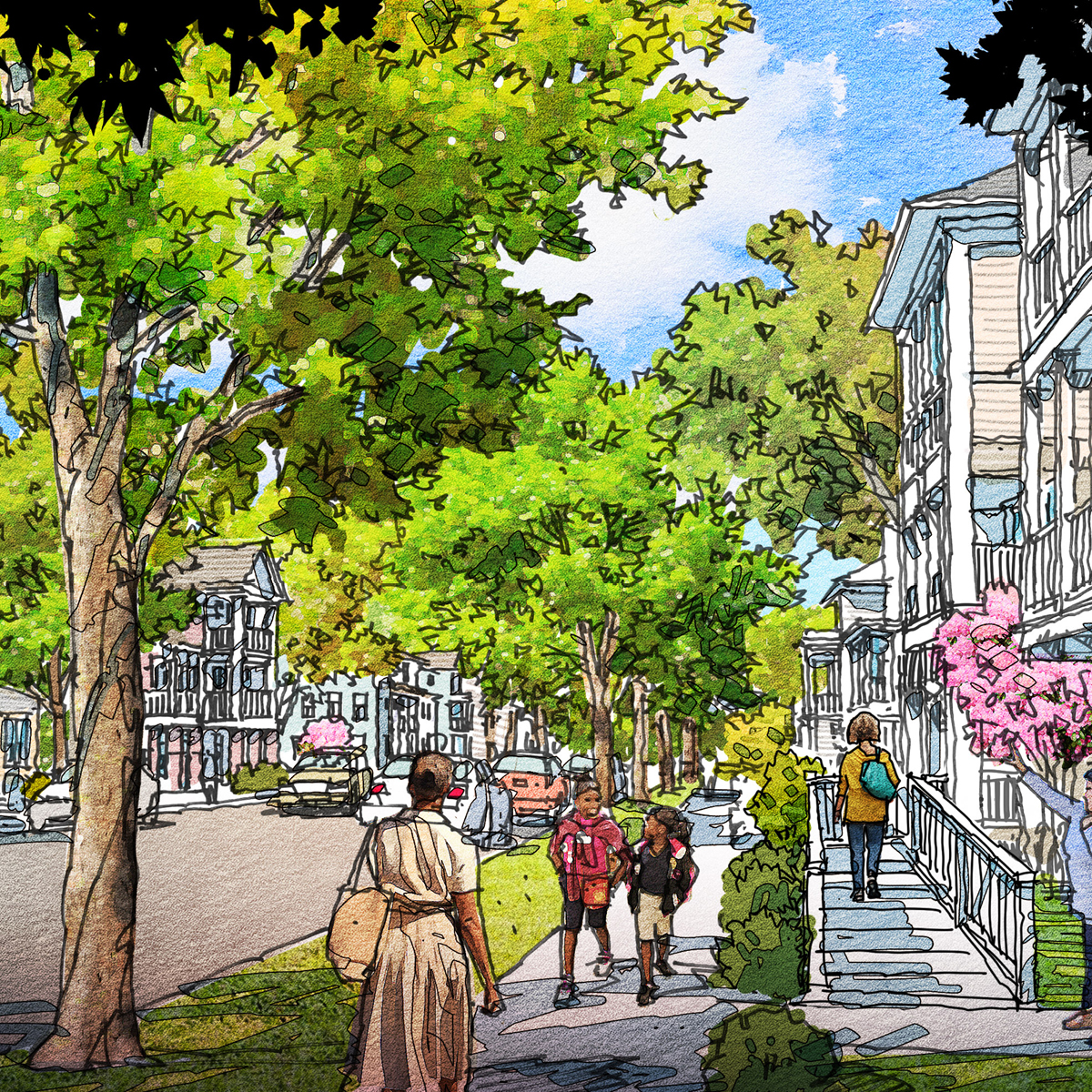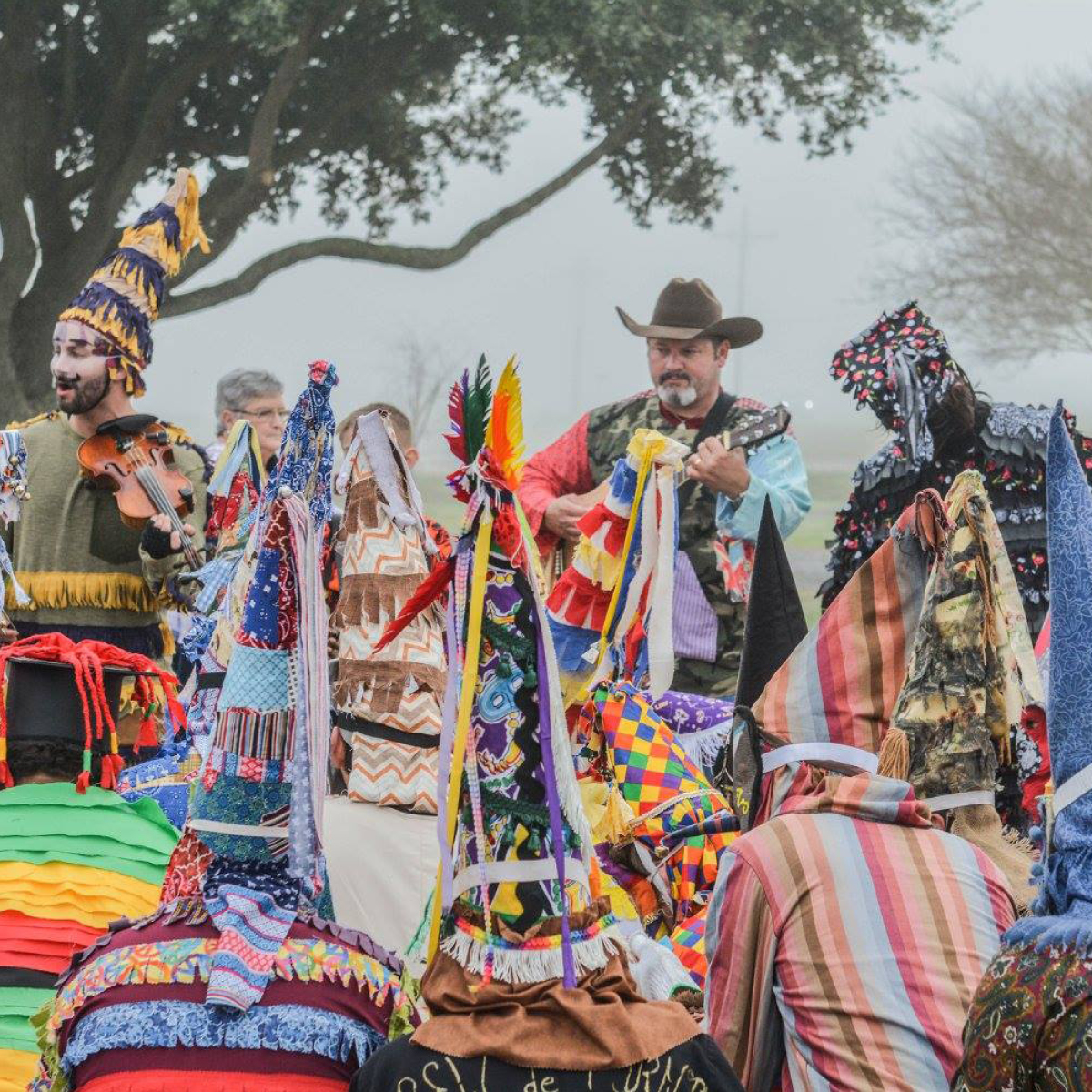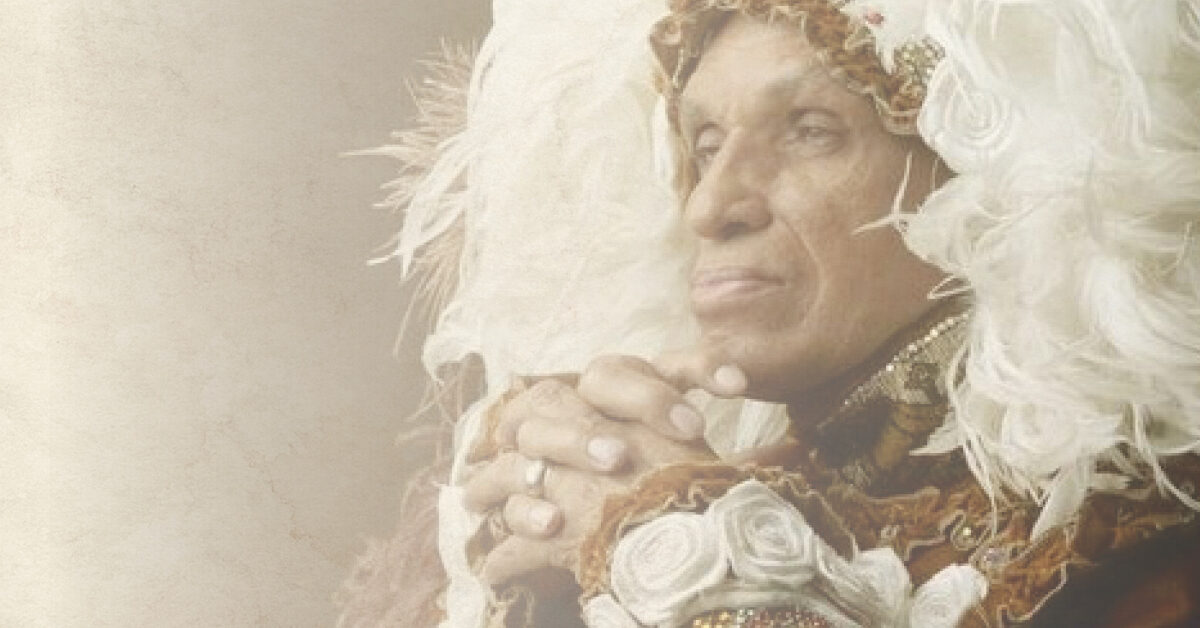
Mid-City Neighborhood Transformation: Just Imagine SWLA Catalytic Project
February 2023
Revelry & Mayhem; 2023 MARDI GRAS GUIDE
February 2023Each February, our country celebrates Black History Month as a way to recognize and honor the accomplishments and positive contributions of Black Americans to our nation and our communities. In this year’s special Black History Month section, Thrive shares a bit of Civil Rights history through six landmark Supreme Court rulings, celebrates the rich culture of Black Mardi Gras traditions, and spotlights several Black-owned businesses.
If it Pleases the Court . . . Supreme Court decisions that have affected civil rights
by Madelaine Brauner Landry
On the front of the United States Supreme Court building, the inscription of “Equal Justice Under Law” promises justice to all “in theory.” Those words have often failed to hold true in practice. Over the centuries, the law of our land has swayed, reflecting the attitudes of society, as well as of the justices who’ve resided over the highest court in the land. In Civil Rights history, countless landmark cases have resulted in an evolution of thought, as well as in the establishment of groundbreaking changes.
During Black History Month, a brief overview of three paired landmark cases is presented here to highlight how the court has changed in approach to some specific civil rights issues.
The Civil Rights Case (1883) and Heart of Atlanta Motel, Inc. v. United States (1964)
In 1883, there were a group of five landmark cases in which the Supreme Court of the United States held that the Thirteenth and Fourteenth Amendments of the U.S. Constitution failed to empower Congress to outlaw racial discrimination by private individuals. During Reconstruction, Congress had passed the Civil Rights Act of 1875, which entitled everyone to access accommodation, public transport, and theaters, regardless of race or color. However, in a majority opinion, Associate Justice Joseph P. Bradley struck the act down, maintaining that the 13th Amendment merely abolished slavery, and along with the 14th Amendment, did not allow Congress to outlaw private acts of racial discrimination.
Justice John Marshall Harlan alone dissented, criticizing the Court’s extremely narrow interpretation of the amendments. “The opinion in these cases proceeds, as it seems to me, upon grounds entirely too narrow and artificial. The substance and spirit of the recent amendments of the constitution have been sacrificed by a subtle and ingenious verbal criticism.”
Nearly a century later, Congress approved the Civil Rights Act of 1964, which banned racial discrimination in public places. The Heart of Atlanta Motel, which had opened in 1956, had refused to rent rooms to African-American patrons. They took their case to court. As the petitioner, they lost when the high court used their decision to finally issue a permanent injunction requiring the motel to refrain from using any forms of racial discrimination. This historic case has since been subsequently cited almost 700 times in other court decisions.
Plessy v. Ferguson (1896) and Brown v. Board of Education (1954)
This famous. “separate but equal” case from 1896 ruled that racial segregation laws did not violate the U.S. Constitution, as long as the facilities were considered to be equal in quality. Following Reconstruction, that decision only served to legitimize many state laws, like those in Louisiana, that had re-established overt racial discrimination in many places. Homer Plessy, a man of mixed race, had attempted to board a “whites only” car on a New Orleans train in the late 19th century. Following his arrest, his lawyers argued that Louisiana law implied that black people were inferior. The “blacks only” car, where Plessy was ordered to sit, was indeed separate, but hardly equal. Following all appeals, the high court held against Plessy.
Once again, Justice Harlan, the lone dissenter, argued that the U.S. Constitution “is color-blind and neither knows nor tolerates classes among citizens.” Widely regarded as one of the worst decisions in Supreme Court history, Plessy v. Ferguson has never been explicitly overruled. However, in 1954, the decision in the landmark case Brown v. Board of Education of Topeka finally established that racial segregation in public schools was unconstitutional, even if the segregated facilities were deemed otherwise “equal” in quality.
Loving v. Virginia (1967) and Obergefell v. Hodges (2015)
This 1967 landmark decision ruled that laws banning interracial marriage directly violated the 14th Amendment to the U.S. Constitution. Mildred Loving, a “woman of color,” and her white husband Richard, had been sentenced to a year of imprisonment for marrying one another. The charges stemmed from the Racial Integrity Act of 1924 in Virginia, which criminalized marriage between “whites and coloreds.” In their 1967 appeal to the Supreme Court, the high court held in favor of the Lovings, effectively striking down Virginia’s anti-miscegenation law, and thus attempting to end all race-based legal restrictions on marriage. The decision was later cited in Obergefell v. Hodges in 2015, resulting in a guarantee that gender-based marriage restrictions would also be considered unconstitutional. The fundamental right to marriage by same-sex couples was established in a 5-4 ruling that now requires all fifty states, the District of Columbia, and U.S. territories to perform and recognize these marriages, with all the accompanying rights and responsibilities.
These are only brief thumbnail sketches of six paired civil rights decisions in the high court’s long and contentious history. The term “civil rights” has generally been attached to various cases, but there remains no single inclusive definition. However, it is commonly accepted that civil rights cases are those that challenge some form of discrimination against a group of people that has been historically oppressed or politically disempowered.
Black-Owned Businesses Make a Positive Impact on our Community
by Angie Kay Dilmore
According to the most recent census data, there are over two million Black-owned businesses in the United States. Women represent 35% of Black-owned businesses, compared to just 27% of female-business owners of other racial identities. As we celebrate Black History Month, we spotlight here a variety of local Black-owned businesses and honor their contributions to our community and the regional economy.
The Guillory-August Allstate Agency
Tuwanna Guillory-August worked in an Allstate office as a Top Sales Producer for 13 years before she found the courage to step out on faith and open her own agency. “December 2, 2019 was the day I became a local small business owner,” she says.
Working in insurance helped Guillory-August realize how essential insurance is to families. “When the wife is in a car accident, or when the husband buys a new ‘big boy toy’ (ie. golf cart, four-wheeler, side by side), or when they welcome a new baby into the family and need life insurance, I’m the person they trust to make sure they have the right coverage.”
Insurance is vital to protect a client and their property. “When an accident or something as tragic as a natural disaster occurs, that’s when a customer is most vulnerable and needs us. I’ve been told numerous times that the genuine care and compassion from my agency has been unmatched.”
Guillory-August says she’s a local girl who stayed in Lake Charles and opened a business that contributes to the local economy. “When you support my agency, you also assist other local people. From team sponsorships to student scholarships to lending a helping hand every time we’re needed, we are proud to be active members in our community!”
Located at 1700 E Prien Lake Rd, 337-305-7676
Todd Clemons and Associates
Todd C. Clemons, attorney and founder of Todd Clemons and Associates, is encouraged by the rise of black-owned businesses, an increase of 31% between 2017-2022 according to Forbes. “This country was built on entrepreneurs,” he says. “Entrepreneurship brings an opportunity to build wealth, to be a leader, and be a positive example for others.”
Clemons says supporting black-owned businesses is important. “Every business owner should strive to offer a quality product or service. By supporting businesses that are well-run, we encourage a higher standard.”
“In all I do, I strive to exhibit good character and be an example for those around me. It’s important to reach back and help those who are coming behind us,” Clemons says. He feels Black History Month is an opportunity to celebrate the accomplishments that African American individuals have achieved throughout the years.
Clemons founded his law firm in 2007 to provide zealous representation for clients. He and his team have represented over 1,500 clients in the 15 years of the firm. Their services include criminal defense, civil litigation, personal injury and family law.
For more information, visit www.toddclemons.com.
Health Systems 2000
In 1994, Lisa Walker founded her business, Health Systems 2000 – the parent organization of Home Health Care 2000, Personal Care Services 2000, the 2000 Health Foundation, and the newly opened Golden Doors Event Center. She and her team have provided professional healthcare services for over 27 years.
Walker says Home Health Care 2000 is a one-stop-shop for all your home care needs. “We offer a variety of services that allow you or your loved one to live a better life at home.” Their services include Non-Skilled Services, Behavioral Health, Fall Prevention, Diabetes Management, Congestive Heart Failure Protocol, and Wound Care. They employ RNs and LPNs; licensed physical therapists and PT assistants; certified occupational therapists; licensed speech therapists; and social workers. Personal Care Services 2000 provides non-skilled personal care assistants. These businesses serve clients across much of Louisiana, from Lake Charles, to Alexandria, and east to New Orleans.
Recently, as part of Southwest Louisiana’s revitalization, Walker opened the Golden Doors Event Center at 2013 Oak Park Blvd, Lake Charles. “It is our pleasure to enhance all your special and intimate events with professionally trained and experienced staff,” Walker says.
Health Systems 2000 is headquartered at 1901 Oak Park Blvd, Lake Charles. For more information, call 337-439-5444.
Lil Mama’s Spot
D’Andrea Arceneaux always wanted to own a business, but she never dreamed it would be a restaurant. She baby-stepped into becoming an entrepreneur by making pralines and selling them at the Cash & Carry Farmers Market. In 2018, she and her husband, Joshua, opened the original Lil Mama’s Spot on Simmons St. in North Lake Charles, and they did very well there selling southern-influenced home-cooked meals. The Arceneauxs opened their current location on Common St. in 2021. “It’s comfort food,” Arceneaux says. “Meatballs, rice and gravy; hand-pattied, well-seasoned burgers; gumbo; seafood dishes on Fridays. We take our time and take pride in everything we do.”
Joshua’s mother, Edna Arceneaux, was an integral part of the business prior to her passing in 2022. She served as their cook when they first opened. D’Andrea says, “I come from a family of good cooks, but I’d never cooked large quantities. My mother-in-law had worked in cafeterias and had done catering. She taught me how to cook for a crowd. She is the inspiration for much of what we do.”
Now both D’Andrea and Joshua cook. She says her husband has a passion for cooking and is especially good with the seasonings. But generally, he works the front house and she works the back. “We’re a team,” she says.
3710 Common St., Lake Charles. 337-602-6095
Cruise Planners
Tina Higgins opened her travel agency in 2016. It’s an online business and she works from home, “or anywhere I have an internet connection,” she adds. Higgins retired early from an IT position, but knew she’d need something to do in her spare time. She started looking for business franchise opportunities. Cruise Planners franchise popped up in her search. “After much research, I realized this was it,” Higgins says. “We have the best support staff and cutting-edge technology, which make the job easy.”
Higgins dispels the misconception that travel agencies charge for their services. “Some agencies may charge small fees, but most do not. We are paid commission from travel vendors. Whether you want to enjoy a short cruise out of New Orleans, travel to Europe, or experience an all-inclusive resort in the Caribbean, an agent can research options for you, do the legwork, book the trip, send you travel documents, and support you while you are traveling for the same price it would cost to plan the trip yourself. Plus, the agent probably has access to deals otherwise not available to the public. Agents can usually save you money!”
For travel information or to book a vacation, call Cruise Planners / Destinations by Tina at 337-405-7650. “I am your advocate throughout the entire travel experience.”
Celebrating Black Mardi Gras Imperial Calcasieu Museum Hosts Exhibit
by Rachel Baldwin
The best part of ringing in a New Year is knowing that Mardi Gras is just around the corner. As we enjoy our king cakes and chicken runs, it’s important to remember the origins of these traditions. Mardi Gras would not be as rich without the influence of Black and Brown communities. This Mardi Gras season, the Imperial Calcasieu Museum spotlights the Black history of Mardi Gras through a fascinating exhibit.
The history of Mardi Gras contains many painful moments but also elements of joy and celebration. Some of these ugly moments include the prevalence of blackface and segregation. New Orleans krewes were not officially desegregated until 1992. But there are also moments of beauty. The celebration of Mardi Gras gave Black people a time of the year that would consistently be filled with celebration and community. For everyone, Mardi Gras is a time to let loose, pass down traditions, and eat well.
One visible difference in Black Mardi Gras garb stems from a 1785 decree from the Spanish Governor Esteban Rodriguez Miró. To prevent white men from being enticed by the beautiful Black Mardi Gras revelers, he ordered Black women to wear headscarves to imply inferiority and dampen their beauty. In an act of resistance, these women wore bright, colorful headscarves instead of drab, ordinary ones. Their boldness became a tradition, with many Black Mardi Gras celebrants wearing vibrant headscarves today.
Many Black Mardi Gras traditions come from this same sense of resistance and resilience. The distinctive style of Black Mardi Gras comes from Black revelers feeling unwelcome or even being forbidden from attending the larger scaled Mardi Gras parades in New Orleans. Rather than accepting their banishment, Black celebrants created their own parades. This allowed them to form their own music, dance, parade, costume, and performance traditions; for example, the Krewe of Zulu tradition of handing out decorated coconuts. This began in around 1910 and has become one of the most coveted parade tosses to date.
Black Mardi Gras traditions also come from a relationship of solidarity dating back to the 1800s. When enslaved peoples attempted to escape their bondage, they would rely on Native American tribes to hide them from slave catchers.
To honor Native Americans for their help, many Black krewes today wear Native American masks. Beyond helping them escape slavery, these two communities have continued their relationship with a long history of intermarriage and mingling of traditions.
These traditions continue to thrive in 2023. Today, there are more Black Krewes than ever before who wear elaborate costumes and participate in parades. Southwest Louisiana is home to the Krewe Chetu Jadi, Krewe of Zulu, La Krewe Des Gens Extraordinaire, Krewe Gumbo YaYa, Krewe Classique, Krewe of Omega, and Krewe Des Ouvert D’Spirit. These krewes and many others celebrate the distinct traditions of Black Mardi Gras and help pass them down to future generations.
The Black History of Mardi Gras Exhibit will be on display through March 4, 2023. Experience intricate costumes, memorabilia and photographs, and histories of our Louisiana Krewes. This elaborate display is on loan from numerous SWLA and New Orleans Krewe collections and the Imperial Calcasieu Mardi Gras Museum. 204 W Sallier St., Lake Charles. Rachel Baldwin is the Assistant to the Director at Calcasieu Imperial Museum.






